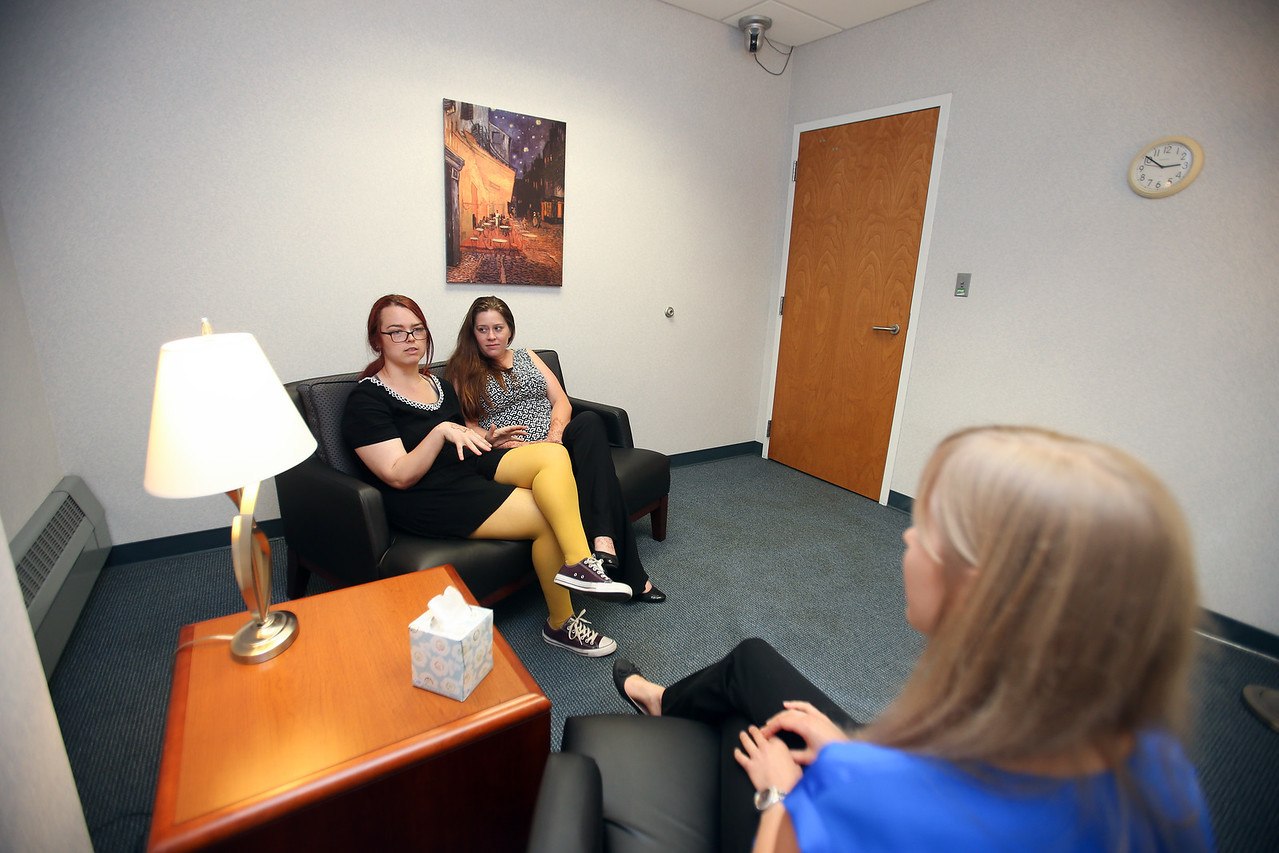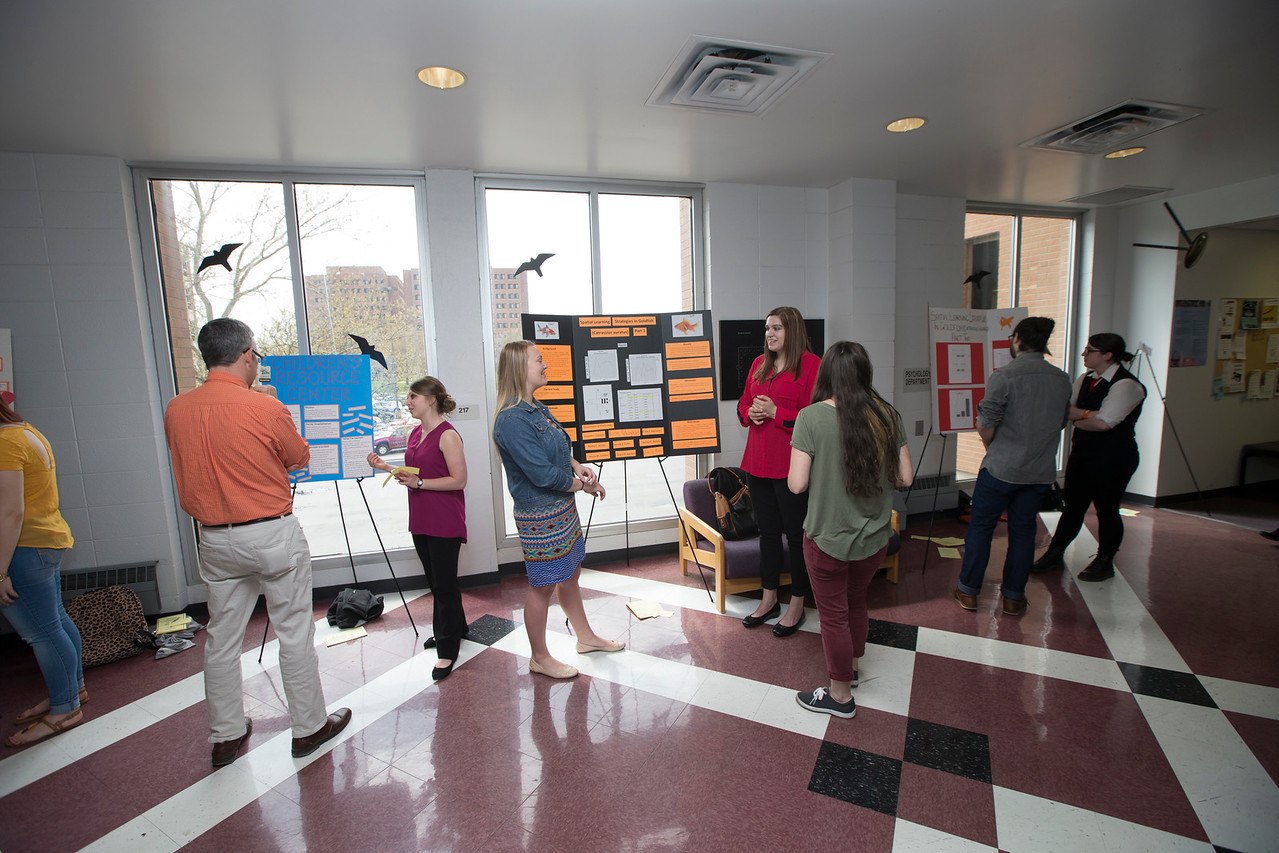Nationally recognized for student experience
The Wall Street Journal

Doctorate
Psychology: Clinical Psychology
Clinical psychology is a field that combines science and practice, emphasizing evidence-based interventions and research-informed clinical practice. The BGSU Ph.D. program in psychology with a specialization in clinical psychology prioritizes this scientist-practitioner model.
Graduates of our APA-accredited clinical psychology program are not only skilled therapists but capable researchers who contribute to the field’s advancement. They embark on high-demand, rewarding careers committed to promoting greater understanding and better solutions for people struggling with mental health.
The BGSU Psychology Department stands out for its commitment to excellence in research, training and community engagement. A special strength of our clinical psychology Ph.D. program is the opportunity for students to participate on advanced clinical teams that take on projects blending research and practice related to their chosen concentration in the field.
Clinical psychologists provide essential diagnosis and treatment services. They play a vital role in helping to address some of society’s most stubborn problems – from mental health crises to the impacts of trauma and addiction. They also serve as staunch advocates for social justice, particularly when it comes to ensuring mental health resources are within reach of those who need it most.
Clinical psychology is one of four specializations within the Ph.D. psychology program at BGSU. The other three are developmental psychology, industrial and organizational psychology, and cognitive and neural sciences.
Program highlights
- APA accreditation. The American Psychological Association has continuously accredited the BGSU clinical psychology Ph.D. program since 1971.
- Combined master’s and doctoral degree. The practice of clinical psychology requires a Ph.D. BGSU does not offer a stand-alone master’s degree in psychology. Most graduate students will earn a master’s degree en route to their doctorate.
- Strong research component. Research goes hand-in-hand with clinical psychology. In the first year, all psychology students enroll in a survey course and join faculty-student research groups. From there, they develop their own program of research – starting with a master’s level research project; then a post-master’s research project or examination in a research specialization; and finally a doctoral dissertation.
- Psychological Services Center. This is our on-campus practicum and training facility, and an essential provider of mental health in northwest Ohio. Consistent with our community psychology model, the Center also provides indirect services, such as educational programs and consulting.
- Licensure. The BGSU clinical psychology Ph.D. curriculum contains all elements required to become a licensed psychologist in 45 of 50 states. Many of the additional licensing requirements mandated by the other five states can be accomplished within the BGSU clinical program through specialized coursework and/or training. Licensing laws constantly evolve. You should check periodically during your studies for changes in the state(s) in which you ultimately plan to practice.
BGSU has one of Ohio’s most active psychology research programs.
#1 public university in Ohio for career prep
The Wall Street Journal
Career opportunities
Clinical psychologists have a wealth of career opportunities in private practice, hospitals, schools, community mental health centers and research institutions. Many clinical psychologists become licensed practitioners, providing therapy services to individuals across the lifespan. Others gravitate toward academia, expanding our collective insights into human behavior through research and education.
Employment for clinical psychologists is projected to grow 7% over the next decade – faster than the average for all occupations (U.S. Bureau of Labor Statistics). Growing demand reflects greater recognition of the importance of mental health and the need for qualified professionals who can address complex psychological issues.
Career paths
- School psychologist
- Behavioral health consultant
- Research psychologist
- Veterans Affairs psychologist
- Organizational psychologist
Clinical psychologist
Quick Facts from the Bureau of Labor Statistics
The BGSU doctorate of clinical psychology program has had a 100% placement internship matching record for seven consecutive years.
Curriculum
The clinical psychology Ph.D. specialization can be completed with or without a spiritual/religious focus). There are also three areas of concentration:
- Child clinical psychology – assessing, diagnosing and treating psychological issues in children and adolescents, including developmental disorders, anxiety, behavioral problems and trauma
- Community clinical psychology – preventing and treating mental health problems in a community setting, such as systemic issues related to social injustice, poverty and access to care
- Health psychology – improving well-being by focusing on the interplay between psychology and physical health and developing plans of care that involve things like behavior changes, stress management and addressing chronic illnesses
The doctoral clinical psychology curriculum at BGSU is structured to adhere to the scientist-practitioner model. It integrates scientific research with clinical practice to foster ongoing improvement and innovation.
The first two years, students complete core clinical psychology courses before moving on to advanced-level classes and specialized seminars. In-house psychotherapy training starts second year and continues throughout. Clinical psychology faculty provides close supervision and exposes students to a wide range of theoretical orientations and therapeutic techniques. Students get a jump start on clinical work and a strong foundation of first-hand knowledge for ongoing discussions, research and practice.
Fifth year, students complete a one-year internship with intensive clinical training on campus or in an APA-approved facility. Our students land competitive spots at highly regarded training centers, including medical schools, community mental health centers, Veterans Affairs offices, university counseling centers, private hospitals, military medical centers, prisons and state hospitals.
Graduates must also complete a one-year internship (usually during fifth year) at an external, APA-approved facility, such as a private hospital, military medical center, school or community mental health center.
Practicum Experiences
Early on, students are placed on Basic Clinical Skills practicum teams of five to seven student clinicians overseen by at least one clinical faculty member. Students begin applying their basic knowledge and skills with a broad range of clients and clinical problems at the BGSU Psychological Services Center, which serves as the Psychology Department’s training clinic.
As they gain experience, students are placed on Advanced Clinical Teams – considered a special strength of the BGSU clinical psychology Ph.D. program. Teams take on projects blending research and practice related to their chosen clinical psychology concentration to serve:
- Individuals
- Communities
- Special populations (e.g., children; problem drinkers; couples)
- Heath/behavioral medicine
Advanced practicum experiences will align with students’ professional goals. Outside placements include community mental health centers, hospital-based rehab facilities and treatment centers for children and families.
Culminating Experience
Doctoral students must register for a minimum of 16 hours in Dissertation Research. This is in addition to:
- Thesis research (3-6 credits)
- Internship (2 semesters)
- A supervised practicum in clinical psychology (6 hours)

Sample courses
- Psychological Assessment
- Clinical Intervention Theories
- Basic Clinical Skills Practicum
- Clinical Child Psychology
- Behavioral Medicine
- Community Psychology
- Research Methods
#1 university in Ohio – big or small, public or private – students would choose again
The Wall Street Journal
The doctoral program in clinical psychology is a part of the Department of Psychology in the College of Arts and Sciences.
Accreditation
Our doctoral program in clinical psychology has been continuously accredited by the American Psychological Association since 1971.
The APA Commission on Accreditation (APA CoA) can be contacted here:
Office of Program Consultation and Accreditation
American Psychological Association
750 First Street NE
Washington, DC 20002-4242
apaaccred@apa.org
202-336-5979
Bowling Green State University [BGSU] is accredited by the Higher Learning Commission. BGSU has been accredited by the Higher Learning Commission since 01/01/1916. The most recent reaffirmation of accreditation was received in 2022-2023, with our next reaffirmation of accreditation scheduled for 2032-2033. Questions should be directed to the Office of Institutional Effectiveness.
Request Information
Updated: 08/15/2025 11:18AM

